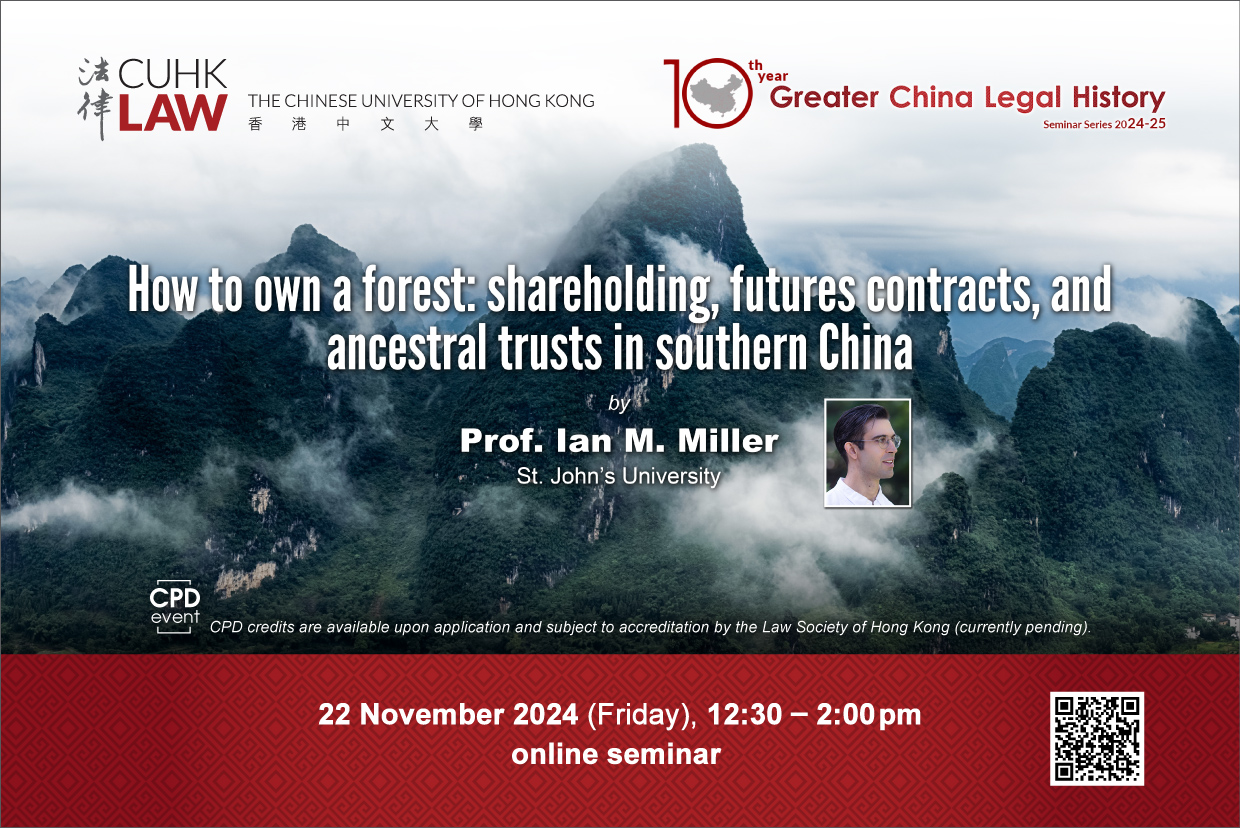Events
CUHK LAW Greater China Legal History Seminar Series – ‘How to own a forest: shareholding, futures contracts, and ancestral trusts in southern China’ by Prof. Ian Miller (Online)
22 Nov 2024
12:30pm – 2pm
Online via ZOOM
Prof. Ian M. Miller
Ian M. Miller is Associate Professor of History at St. John’s University in New York where he teaches East Asian history, world history, and environmental history. He is the author of Fir and Empire: The Transformation of Forests in Early Modern China (2020) and the co-editor of The Cultivated Forest: People and Woodlands in Asian History (2022), where he explores (among other topics) forestry contracts and their implications for our understanding of property rights, specialized expertise, and early securities markets. He is currently working on a monograph on graves and the emergence of kinship organizations, collective property, and environmental protection, tentatively titled Ancestral Shade: Kinship and Ecology in Southern China.
Professor Miller received his PhD in History and East Asian Languages from Harvard University in 2015. Between 2016 and 2018, he was a Program Fellow in Agrarian Studies at Yale University, and a Visiting Scholar at the Max Planck Center for the History of Science in Berlin. In 2021-22, Professor Miller received a fellowship from the National Endowment for the Humanities to begin work on Ancestral Shade.
Can you own a forest? To a modern audience, this question may appear absurdly naive, but to villagers in Ming and Qing China, it was a surprisingly fraught question. First, labor was a key way to demonstrate possession, but forestry labor was far less regular than farm labor. By plowing, weeding, and reaping farmland, peasants regularly demonstrated their claims to ownership, or at least possession. But forests were planted in the space of a few years and then left to mature for several decades. How could peasants demonstrate ownership of trees that they were not managing on a day-to-day basis? Second, inheritance was a key basis for ownership claims, but ancestral forests had taboos on their use. Trees near graves, temples, wells, watercourses, and other ritually significant sites were off-limits. How could descendants claim ancestral forests without limiting their own abilities to use them productively?
To answer these questions villagers in southern China developed contractual mechanisms to both subdivide and merge forest rights and responsibilities. These included shares and other clauses used to partition forest rights and responsibilities, as well as trusts, portfolio deeds, and management contracts to combine properties for easier investment and oversight. In this talk, I will discuss the key role that forests played in the emergence of several financial instruments, including shares, futures contracts, and trusts, and the implications this has for our understanding of land ownership itself.
Language: English


